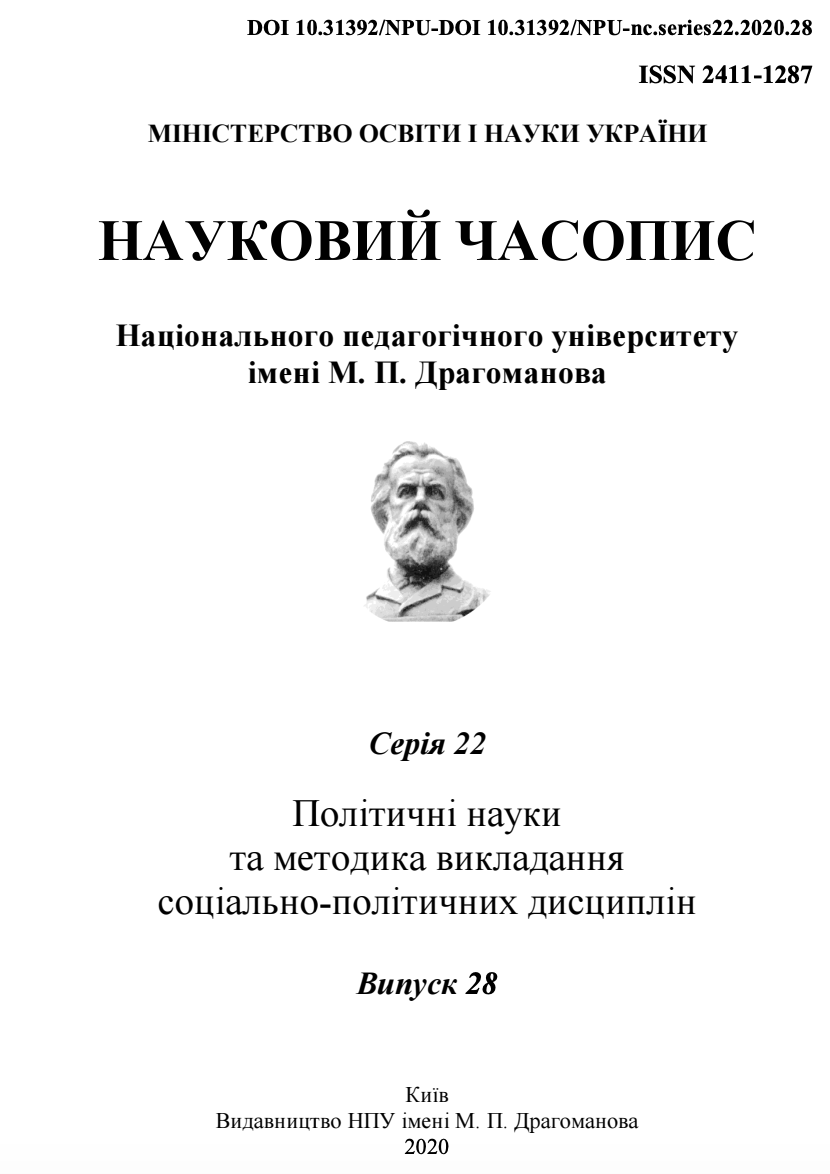Mediapsychological Factors of Electoral Choice–2019
Keywords:
media psychology, electoral behavior, political culture, political education, electoral technologiesAbstract
The article is devoted to the study of the influence of mediapsychological factors on the electoral choice of citizens, the formation of their political behavior. The analysis of the progress of the 2019 presidential and parliamentary election campaigns in Ukraine, the social and psychological components of this process were identified: a) social protest as a non-violent form of reaction to the social situation; b) emotional and sensory factor as an indicator of citizens' attitude to the situation and events, expected or imagined situation. The role in the electoral choice of the emotionally-sensual form of cognition is highlighted. The concept of "carnivalisation of politics" as a definition of the practice of indirect use of entertaining television programs and shows in the implementation of politics, in particular manipulative influence during the election process, is disclosed. The main sources for obtaining voters' information about political events were identified, the television content of the most popular television programs and the content of television news were analyzed. Emphasis is placed on the role in the perception of information emotions and their nature, as well as increasing the tendency to develop acquired syndrome. In the context of L. Festinger's theory of cognitive dissonance, the connection between the cognitive and emotional spheres is revealed. Emotions are seen as motives of appropriate behavior, the emergence of which leads to cognitive dissonance or cognitive consonance and indirectly, during election campaigns, affect the electoral choices of citizens. It is argued that one of the features of modern political processes is, on the one hand, the tendency to increase irrational knowledge, and on the other - the need to develop a project of the future, the formation of new social meanings and political orientations, a holistic and consistent ideological concept, based on the conduct of behavior voters, which enhances their rationality. Possible directions and ways of counteracting manipulative influence on voters' consciousness, improvement of the political education system and raising the level of political culture of citizens are outlined.

